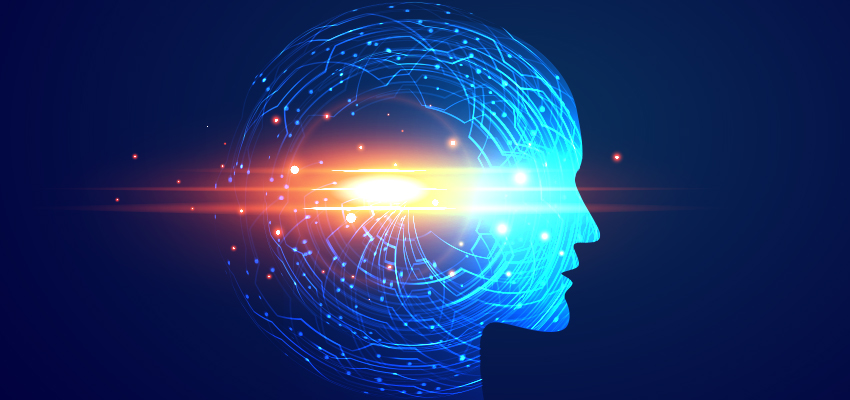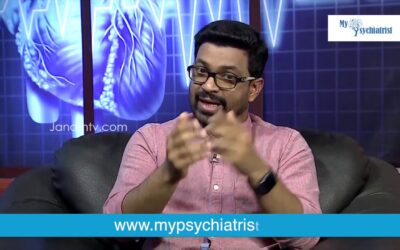Psychiatric or Mental Illnesses include a wide range of disorders that mainly affect thinking, mood and behaviour. The symptoms of this type of illness include changes in mood, personality, habits, or social interactions. In addition, there could be disturbances in sleep patterns, appetite, and sexual activities.
According to previous estimates, in India, out of every 100 people, 6 to 7 people would have a major mental illness. Mental illnesses are also like physical illnesses and may be caused due to hereditary factors, environmental stresses, biochemical imbalances in the brain and body, or a combination of these. And consequently, its manifestations could be physical, emotional, and psychological. With proper care and treatment, it is possible to recover from mental illnesses. Like physical illnesses, some may be completely curable with a short course of treatment (like a fever or infection). However, others may require long term medications to control symptoms (like high blood pressure and diabetes). If the treatment is started at the earliest, the ease of recovery and outcome improves significantly.
However, due to the stigma associated with mental illnesses and the cultural belief systems, often people do not seek medical help for mental illnesses in the beginning. This delay plays a huge role in worsening the outcome. As in case of physical illnesses, mental illnesses also range from mild to moderate to severe. The treatment is easier and outcomes are better if treatment is started in the earlier stages when the illness is in its mild form.
Mental Illnesses are broadly categorized into
Those caused due to structural brain damage.
These include changes noticed in people after a stroke or head injury. Such illnesses are usually more difficult to treat and likely to require lifelong medications for management.
Those related to use of Additive Substances like alcohol, nicotine and other drugs of abuse like cannabis (ganja), heroin, cocaine, and party drugs.
These may be in the form of acute overdose, behavioural changes related to use of substance, and symptoms due to withdrawal of substance.
Disorders of Thought
This type of illnesses include schizophrenia and other disorders referred to as “psychosis”. The affected person loses touch with reality, becomes suspicious and holds on to baseless beliefs which are not true.
Disorders of Mood
These include depression and bipolar disorder wherein there is a continued change in the mood of the person. The person remains sad, excessively happy or irritable without adequate reason. There are usually related changes in sleep and appetite also.
Anxiety Disorders
In these situations, the affected person has increased anxiety. These may occur in the form of panic episodes, general free floating anxiety, specific anxiety provoking and repetitive thoughts, situation related anxieties (e.g., in social situations) and phobias or irrational fears.
Disorders related to Sexuality
These include disorders related to sexual activity (premature ejaculation, inability to experience orgasm etc.) and sexual preference (paraphilias). These are considered to be disorders only if they cause significant distress or inability to function in other spheres of life in the individual.
Mental Disorders with Physical Manifestations (Psychosomatic)
Sometimes, stress can cause purely physical manifestations like pain, fatigue etc. in persons without any changes in mood or anxiety levels. Some of these may also be related to changes in levels of certain biochemical in the brain and body.
Disorders of Sleep
Persons may experience difficulties related to quantity of sleep (insomnia), quality of sleep (frequent awakenings), or others such as sleep walking, nightmares etc.
Eating Disorders
Some may have difficulties and issues related to eating such as binge eating, induced vomiting, anorexia etc.
Personality Disorders
All people have certain personality traits, but in some, these characteristics are rigid and create difficulties in performing daily activities. In such cases, psychiatric intervention may be required.
Dementia
Dementias are progressive illnesses that involve degeneration in the brain causing difficulties primarily in recent memory. In addition, other intelligence related functions like performing many tasks, following instructions, finding your way around, writing etc. may also be affected.
Mental Retardation
In these cases, there is below average intelligence and associated deficiencies in other areas of functioning like self-care, communication, skills for social interactions etc. which are begin in childhood and do not progress or worsen.
Developmental Disorders
These are disorders that occur when the normal psychological and social development of a child does not occur. It includes delays in language development, defects in socialization, autism etc.
Other Childhood Disorders
In addition to Mental Retardation and Developmental Disorders, there are certain other illnesses which occur in childhood. These include issues of lack of attention, hyperactivity, learning difficulties, behavioural problems like temper tantrums, bully behaviour, school refusal, bed wetting etc.



0 Comments